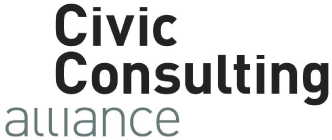The 21st Century Commission
Case Study: 2007
In 2007, Mayor Richard M. Daley named the 21st Century Commission to advise him on the direction Chicago’s City government should take to meet the changing needs of the city, its residents, and its businesses in the decades ahead. This was a bold challenge, and the Commission saw this charge as a unique opportunity to step back from present concerns and reconsider the future scope and structure of Chicago’s government.
Civic Consulting Alliance worked closely with the Mayor’s Office to develop a structure for the Commission (three committees made up of a diverse group of 22 Civic leaders) and to seek out expertise from private firms in the city. KPMG and Deloitte provided pro bono expertise in government affairs. Lloyd Consulting and O-H Community Partners provided pro bono expertise in neighborhood development, specifically, transit oriented development.
The Challenge
“The education of Chicago’s children, the preparation of its adults for jobs, public safety and crime, affordable housing, health care, aging infrastructure, and the quality of natural resources will dominate local government choices in the coming decades, much as they will elsewhere. With these challenges in mind, the City has been working toward the day when parents make the decision to live in Chicago because of quality schools, when people feel safe in all neighborhoods, and when people can get jobs locally that provide income and security for their families.”
At the beginning of 2007, the City of Chicago faced increasing costs and decreasing revenue. It recognized that it was essential for the government to balance significant budget concerns with the need to provide valuable and comprehensive services to the citizens of Chicago.
With this recognition and the impending announcement of the budget deficit, the Mayor’s Office determined that in order to face and adjust to the economic constraints, it needed to develop an understanding of the future “look” of the City of Chicago and the government structure. In order to ensure that this economic crisis was addressed in a thorough and innovative manner, the City had to develop a method to accurately and fairly assess the current economic landscape and recommend forward-looking ideas.
The Solution
Civic Consulting and the Mayor’s Office together developed a structure for the commission.
To ensure that the evaluation and recommendation process was innovative, progressive and fair, the commission was made up of 22 civic leaders from all walks of life-business leaders, academic leaders, religious leaders, community leaders, and union representatives.
The 22 commissioners were divided into three committees and were led by private partners:
- Lia Douglas from KPMG led the Internal Support Committee
- Susan Lloyd from Lloyd Consulting led the Resident Services Committee
- Kim Hunt from O-H Community Partners and Tom McKone from the Civic Consulting Alliance led the Business Services, Infrastructure and Environment Committee
- Deloitte provided general guidance to all Committees and the Commission as a whole was led by Sarah Pang from the Mayor’s Office and Bennett Johnson, the City Budget Director
The Committees and Commission, in whole or part, met 65 times and had the opportunity to hear from key stakeholders and experts to guide the recommendation process. At the end of the process, the Commission developed 64 recommendations for how City could change services and delivered them in a final 141-page report. The recommendations focused on areas such as the consolidation of departments for better efficiency, automation of the back end of resident services, and improvement of citywide technology. In addition to these recommendations, the Commission also laid out an explicit vision for the future of the City of Chicago’s government structure.
The Impact
Much of the report recommended long-term solutions to ensure that the City’s government structure would enable Chicago to provide efficient, effective and relevant services. The report also focused on some quick-wins that would allow the City to make immediate changes. Some of these quick-wins were:
- Consolidate departments and offices that serve vulnerable adults
- Support Chicago LEADS (another Civic Consulting initiative)
- Create a division of real estate management to optimize the City’s real assets
- Develop more transparency by publishing performance measures on-line.
Ultimately, as a group, the recommendations represented a mixture of ideas, big and small, some complex and difficult, some quick and reasonably easy to implement. In the long term, many will be difficult to tackle, but the Commission anticipated that the results would be dramatic.

